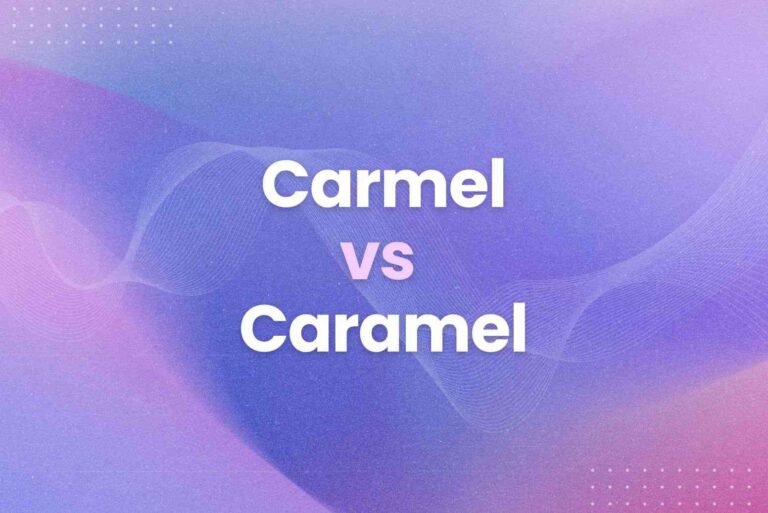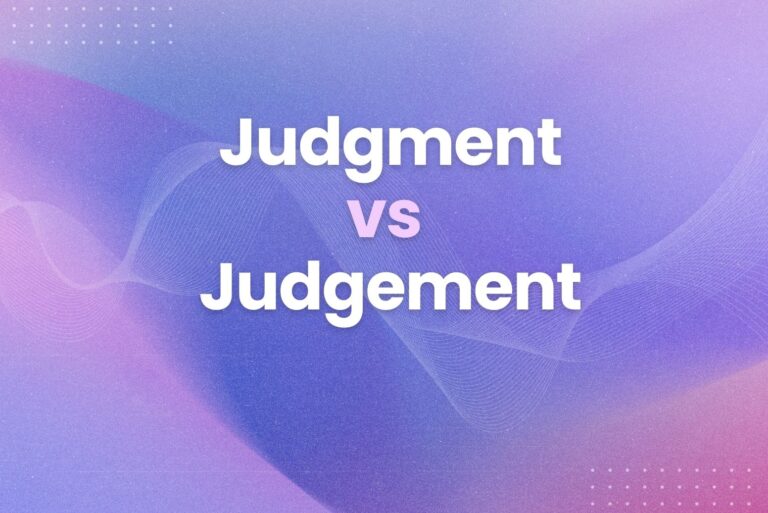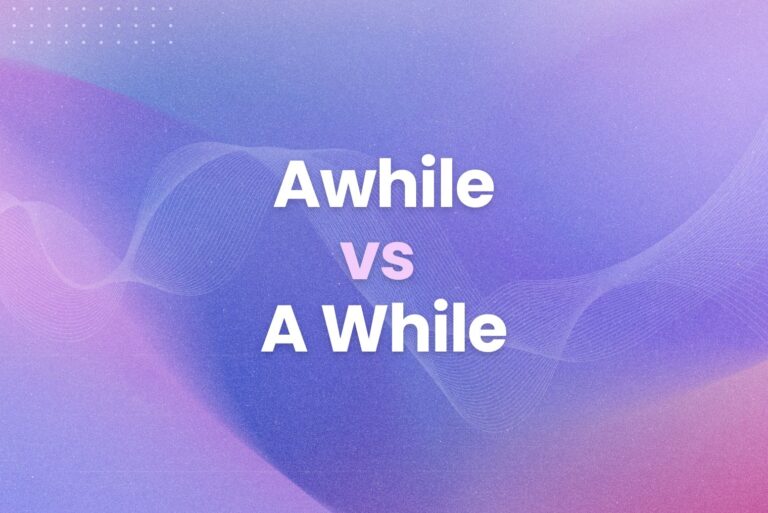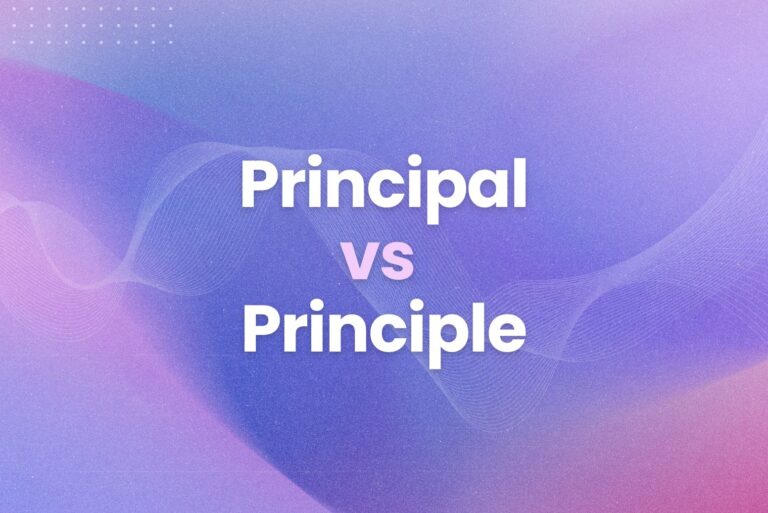Themself or Themselves: Which One Is Correct?
The choice between choosing to use themself or themselves often confuses people, but it boils down to how the word is used and the evolving norms of modern English.
Don’t let grammar trip you up! Arvin AI is your writing co-pilot for smooth, flawless communication.
Definition of Themself
“Themself” is a reflexive pronoun used to refer back to a singular they in the same sentence. While traditionally considered nonstandard, its usage is becoming increasingly accepted in modern English, especially in inclusive and nonbinary contexts.
Singular Reflexive Pronoun:
“Themself” is used when referring to a singular subject who is represented by they.
- Example: “Everyone should ask themself if they are ready for the next big step.”
Think of characters like Spider-Man, who often has to remind themself of their purpose before diving into action.
- “In Encanto, Mirabel frequently questions her place in the family, reminding themself to stay strong despite feeling out of place.”This illustrates how self-reassurance and reflection tie into the concept of “themself.”
Inclusive Language:
Language evolves to meet the needs of its speakers. As society embraces diversity and inclusivity, “themself” reflects an important shift toward honoring individual identities.
“Themself” is particularly common in nonbinary contexts, where singular they is used to respect an individual’s gender identity.
- Example: “Jordan brought themself coffee before the meeting to stay energized.”
In shows like The Good Place, inclusive language is subtly integrated into dialogue to reflect diverse perspectives.
Inclusive writing starts with clarity. Let Arvin AI’s Grammar Checker guide your word choices, including nonbinary-friendly terms like ‘themself’!
Evolving Acceptance:
While “themself” was historically considered less formal than “themselves,” its growing use aligns with modern language trends that prioritize inclusivity.
- Example: “Someone left themself a note on the fridge to remember the meeting.”
The rise of nonbinary representation in pop culture, like the character Raine Whispers in The Owl House, has helped normalize inclusive language like “themself.”
- “In Star Trek: Discovery, the introduction of nonbinary characters like Adira highlights the importance of language that respects individual identities, including pronouns and reflexive forms like ‘themself.’”
Examples of Themself
- “Ellie in The Last of Us repeatedly reminds themself to keep going, driven by her loyalty to Joel and her need to survive in a hostile world.”
- “In Encanto, Mirabel questions her worth within her family but encourages themself to uncover the truth about the magic, even when no one believes her.”
- “Will in Stranger Things often finds themself navigating emotional scars from the Upside Down, pushing through fear to support his friends.”
- “Tony Stark in Iron Man 3 battles anxiety and tells themself to rebuild from scratch, realizing he’s more than the suit that defines him.”
Definition of Themselves
“Themselves” is a reflexive pronoun used when the subject and object of a sentence are the same. It typically applies to plural subjects but also works for singular they in modern, inclusive contexts.
Reflexive for Plural Subjects
When a group does something for or by themselves, this is the go-to reflexive pronoun.
- “The Avengers trained themselves to work as a team, even with their clashing egos and superpowers.”
Singular They for Inclusivity
In modern English, themselves is also used with singular they, making it an essential tool for gender-neutral or unknown subjects. Perfect for when you’re writing about someone and don’t want to assume their identity.
- “Someone left themselves a reminder on their phone to avoid binge-watching shows before finals week.”
Emphasis or Independence
It highlights self-reliance or effort without outside help.
- “The students built the entire set for their school play themselves, turning cardboard and paint into a magical kingdom.”
Examples of Themselves
- “The characters in The Breakfast Club opened themselves up to each other, breaking down stereotypes and finding unexpected friendships.”
- “In The Hunger Games, Katniss and Peeta had to fend for themselves in the arena, relying on their wits and resilience to survive.”
- “The characters in Parks and Recreation often found themselves creating absurd yet heartfelt solutions to problems in Pawnee.”
- “The Avengers proved themselves worthy heroes by putting their differences aside and saving the world, time and time again.”
- “In Harry Potter, the DA (Dumbledore’s Army) trained themselves in secret, mastering spells to defend Hogwarts from danger.”
Differences between Themself and Themselves
| Themself | Themselves | |
| Definition | A singular reflexive pronoun used with they in modern contexts, especially for nonbinary or singular uses. | A plural reflexive pronoun traditionally used for plural they and sometimes singular they. |
| Usage Context | Used when referring to a single individual in gender-neutral or inclusive language. | Used when referring to multiple people or in traditional singular contexts. |
| Example | “In The Good Place, Michael repeatedly questions themself as they navigate moral dilemmas.” | “The Avengers trusted themselves to unite as a team despite their differences.” |
| Formality | Less formal and still emerging in common usage but gaining acceptance in inclusive writing. | Widely accepted in both formal and informal contexts across traditional and modern English. |
Themself or Themselves Singular
“Themselves” is the traditional choice for singular they, commonly accepted in both formal and informal English. It remains the go-to for most situations.
Example: “Someone should remind themselves to double-check the map before going on the quest.”
- Think of Frodo in The Lord of the Rings, constantly reminding themselves of the importance of destroying the ring, even when the weight of the journey feels unbearable.
Example: “Every contestant psyched themselves up before stepping onto the stage.”
- This feels like RuPaul’s Drag Race, where queens hype themselves before slaying their performances.
When to Use “Themself” (Singular)
“Themself” is gaining traction in modern, inclusive contexts, especially for nonbinary individuals or when singular they is used. Like Lady Gaga reinventing themself with every album, this speaks to the power of self-innovation and creativity.
- Example: “Every artist should challenge themself to explore new ideas and push boundaries.”
Themself or Themselves Reddit
If you’ve ever wandered into a Reddit thread about grammar, you know how passionate (and occasionally heated) these debates can get. The battle between “themself” and “themselves” is no exception, with Redditors diving deep into grammar, inclusivity, and modern language trends.
The Traditionalists
Grammar purists argue that “themselves” is the tried-and-true choice. It’s been used for singular they forever and feels natural in most sentences.
- Example: “Everyone should prepare themselves for a plot twist as wild as the Red Wedding in Game of Thrones.”
The Progressives
On the flip side, supporters of “themself” champion its use in inclusive language, especially for nonbinary individuals. For them, it’s about respecting identities and letting language evolve.
- Example: “Someone left themself a reminder to pick up the new BTS album before it sells out.”
Hot Takes from Reddit
Grammar geeks love dissecting sentences like, “Each player psyched themselves/themself up for the match,” analyzing which feels right for the context.
Additionally, LGBTQ+ communities often lean towards “themself” as a way to honor nonbinary pronouns and foster inclusivity.
And of course, there’s always that one user like, “Language evolves. Shakespeare would’ve totally been cool with ‘themself.’”
We totally agree with that sentiment. Language evolves, but grammar doesn’t have to be confusing. Arvin AI’s Grammar Checker helps you navigate changes with confidence.
Themself or Themselves Pronoun
| Aspect | Themself | Themselves |
| Usage | Modern, inclusive, often used with nonbinary singular they. | Traditional, used for both plural they and singular contexts. |
| Example | “Someone challenged themself to step outside their comfort zone.” | “They taught themselves the basics of coding through YouTube.” |
| Formality | Less formal but increasingly accepted in progressive spaces. | Suitable for all contexts, formal and informal. |
Themself or Themselves LGBTQ+
When discussing “themself” and “themselves” in LGBTQ+ contexts, it’s all about inclusivity and evolving language. Both terms respect nonbinary identities, but each brings a slightly different vibe to the table.
“Themself”: The Modern and Inclusive Choice
Why It Works: “Themself” focuses on individuality, making it perfect for nonbinary contexts where affirming identity is key.
- Example: “Sam encouraged themself to take a leap of faith and audition for the lead role.”
LGBTQ+ Context
When discussing “themself” and “themselves” in LGBTQ+ contexts, it’s all about inclusivity and evolving language. Both terms respect nonbinary identities, but each brings a slightly different vibe to the table.
“Themself”: The Modern and Inclusive Choice
Why It Works: “Themself” focuses on individuality, making it perfect for nonbinary contexts where affirming identity is key.
- Example: “Sam encouraged themself to take a leap of faith and audition for the lead role.”
- This feels like Rue in Euphoria, reminding themself to find strength even when the world feels overwhelming.
- “Adira in Star Trek: Discovery often pushes themself to trust their instincts while navigating life as a nonbinary character in a diverse universe.”
“Themselves”: Traditional but Still Inclusive
Why It Works: “Themselves” is the widely accepted form, even with singular they, and works in any context.
- Example: “Jordan took time for themselves, escaping into their favorite hobby to recharge.”
Final Words
The choice between “themself” and “themselves” reflects more than just grammar—it’s about understanding how language evolves to respect individuality and inclusivity. While “themselves” remains the traditional choice, “themself” has carved a space in progressive language, particularly when honoring nonbinary identities or emphasizing singular they.
Language is dynamic, and every choice we make—whether it’s for clarity, tradition, or inclusion—shapes how we communicate and connect. So, whether you’re writing formally or creating space for new identities, let your choice reflect the values you want to champion.

Words matter—make them count. Arvin AI’s Grammar Checker clarifies grammar so you can focus on your message.
FAQ
Both are correct, but their usage depends on context. Use “themselves” for traditional and formal writing, even with singular they. “Themself” is a modern, inclusive choice often used in nonbinary contexts.
Yes, “themself” is a recognized word, especially in informal and inclusive writing. It’s commonly used with singular they to emphasize individuality, though it’s less traditional than “themselves.”
Absolutely! “They themselves” is perfectly grammatical and is often used for emphasis. For example, “They themselves completed the project with no outside help.”
Yes, “themself” is a valid word, gaining traction in modern English. It’s commonly used to support singular they in contexts that emphasize inclusivity or nonbinary identities.





